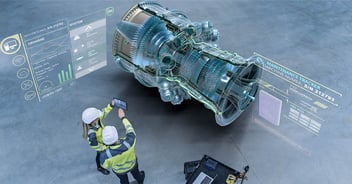

Whether one follows Strasberg or Meisner (advocates and coaches of method acting), award worthy acting performances don’t happen unless one can relate to the role that one is contracted to play. One would have to get a deep understanding of (a) the characterization of the role, (b) situation that must be enacted, (c) psychological state of the character in that situation, and (d) immerse themselves into those moments that contain that situation so as to relate to other players and deliver the performance.
Actors famous for method acting include (among many others) Marlon Brando and Kamal Hassan. Their performances as The Godfather are well known and celebrated. Method acting required them to know the character, know the moment, and finally the psychological state of the character from their own experiences. Though the essence of the role is the same, Godfathers evolve due to different social reasons in different cultures and hence this difference had to be brought out, though the role is the same. The Mafia lent “protection” in New York while they championed the cause of the poor India. An understanding of this underlies the performance of Brando and Hassan. Brando chose a mentoring approach to Hassan’s protector; delivering singular, award winning, performances. Critics praised the preparations and rehearsing that the actors did prior to filming.
Given that the role is enacted differently, one may discern that the motives, actions and evolving situations may differ but the outcomes are the same. One delivers a chopped horse’s head to victim’s bed to instill fear while the other threatens to beat up a doctor who refuses to treat an impecunious patient. Both lose their sons as a consequence of reckless behavior.
Many Talent Managers feel that recruits can acquire skills necessary for performance in the same systematic way. In order to do this, they need role clarity. This includes (among many other information pieces) the knowledge of tasks to be performed. In my own personal experience as gas station attendant (I used to work in a petrol bunk in my student days), I had been trained to greet customers, solicit additional business and generally help have an agreeable experience. In order to understand the essence of the role, I would have to put myself in the customer’s shoes in order to develop the necessary empathy, role play with my peers to get my act together and then go for the “live” situation.
Examiners would perform an audit of my performance (formally) as an attendant or even test me by surprise. When the surprise check came in and if I went through my act properly, then I had a cash award coming instantly.
Ramco’s customers in retail have similar practices. Shop attendants are taught how to engage customers and guide them toward products that they are likely to buy and assure them of a pleasant shopping experience. There is a written script that attendants can memorize and repeat in order to greet customers and engage them. Role playing training helps them deal with customer personality types – from the shy to the irascible customer. There is a formal “behavioral” measurement process in place which rewards attendants to deliver appropriate behavior. In the next part of the blog, we will define behavior. And in subsequent parts we will relate it to the concept of method acting as well.

